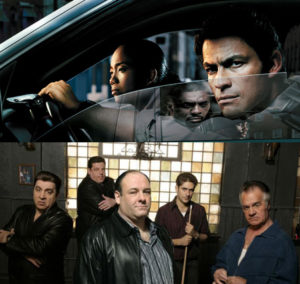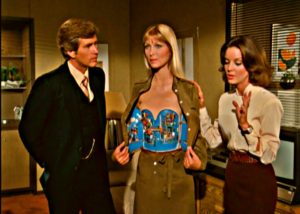Westworld was one of those rarities in Hollywood: Entertainment that lived up to its stratospheric hype.
As beautiful as Game of Thrones and as brainy as the first season of True Detective, Westworld reaped the reward of zeitgeist, as its arrival timed nicely with the public’s surging interest in Alexa, Google Home, Siri — and the requisite debate over Artificial Intelligence.
And Westworld timed it all with the precision and thunder of a two-handed slam by Lebron James (another phenom who equaled expectations). You didn’t know who was human and who was human-ish. Which stories were real and which were just plotlines. The first season held its own against HBO debuts like The Sopranos, The Wire and Sex and the City. All had second seasons demonstrating freshman year was no fluke.
Alas, Westworld finds itself in a sophomore slump, one of its own design.
Who, exactly, are we supposed to root for in the second season? Season 1 (spoiler alert) culminated in a terrific finale as the machines became self-aware — and bent on revenge on the humans who imprisoned them in the futuristic theme park. It was a great story the first time around (the original movie came out in 1973) and proved just as powerful in the reboot.
Now, however, the show is lost for a hero. Is it the woman leading the cyborg onslaught? The humans who created the victims? Every story needs a reason to care about it. But Westworld still seeks a motivation beyond bloodlust (and the battles are bloody. And often nude.).
The problem is in Westworld‘s primary genetic design. It doesn’t lend itself to long format storytelling.
This is true for all films that rely on a shocking reveal. There’s a reason there was no sequel to The Crying Game (whose hero turned out to be a woman) or The Sixth Sense (whose hero turned out to be dead). Oh yeah, spoiler alerts. Those films realized that when you fool an audience the first time around, you get a more skeptical audience with each new chapter.
And that suspicion is powerful. It nearly ruined the career of M. Night Shyamalan, whose penchant for pulling the rug from under audiences’s feet became the bane of his career. Blade Runner 2049, the much-hyped sequel to the 1982 classic, collapsed under the same “fool me once” strategy. Ridley Scott’s sublime original left us to wonder who was human and who was a “skin job.” But those doubts left last year’s film an unmitigated failure: It cost $150 million and recouped only $92 million.
Westworld‘s own history suggested it was spawned in a troubling loop. MGM tried to milk the original franchise, launching a sequel, Futureworld, and a TV show, Beyond Westworld. The sequel was a critical and commercial flop, never recovering its $2.5 million budget. The TV show lasted five episodes before it was canceled.
This doesn’t necessarily doom the new iteration. After all, the series smartly recruited Jonathan Nolan, whose short story brother Chris turned into Memento. That story, too, would never warrant a sequel. As in real life, once you learn characters aren’t who they say they are, you’re less likely to invest in their interests.
We get the Westworld message: Artificial intelligence will adopt the same failings as its human architects. But that also means your robots must face larger ethical issues than how to exact revenge. It’s not enough to be self-aware; you must make moral decisions based on that awareness.
And right now, you can’t help but be aware that Westworld’ one-trick pony act needs to learn new stunts.

